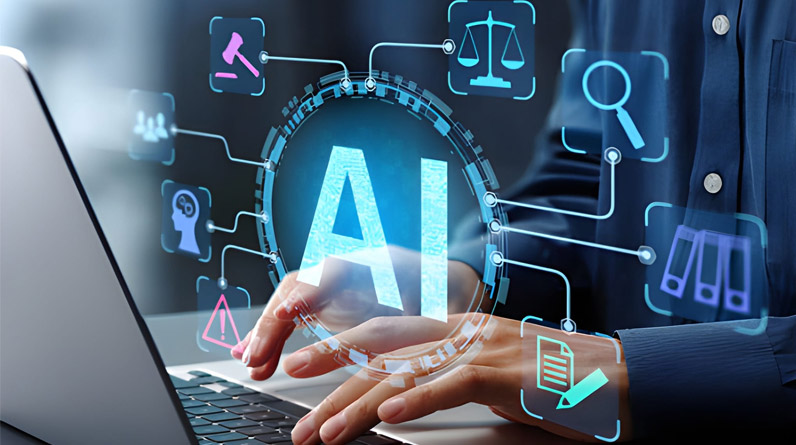The workplace is undergoing its most significant transformation since the Industrial Revolution. Artificial Intelligence is not simply automating tasks—it’s fundamentally redesigning how we think about work itself. While headlines focus on job displacement statistics, the real story is far more nuanced: we’re witnessing the emergence of an entirely new employment ecosystem where human creativity and AI capabilities merge to create unprecedented opportunities.
This transformation demands that we move beyond the simplistic “jobs lost versus jobs gained” narrative and examine the deeper structural changes reshaping modern employment.
The Economic Magnitude: Understanding AI’s Financial Impact
The numbers surrounding AI’s economic influence are staggering, yet they only tell part of the story. According to research from McKinsey Global Institute, AI could deliver approximately $13 trillion in additional global economic activity by 2030—representing a 16% increase in cumulative GDP compared to today. This translates to an additional 1.2% GDP growth annually, comparable to the economic impact of transformative technologies throughout history like electricity and the steam engine.
However, these aggregate figures mask significant variations across industries and regions. Goldman Sachs estimates that AI could replace the equivalent of 300 million full-time jobs globally, yet simultaneously predicts AI will increase the total annual value of goods and services produced by 7%.
| Timeframe | Projected Impact | Source |
|---|---|---|
| By 2025 | 85 million jobs displaced, 133 million new jobs created (net gain: 58 million) | World Economic Forum |
| By 2030 | 20-50 million new jobs globally; 70% of companies adopt AI technology | McKinsey & Company |
| By 2030 | 30% of work hours could be automated; 14% of employees need career changes | PwC / McKinsey |
| By Mid-2030s | Up to 30% of jobs could be automatable | PwC |
Beyond Automation: AI as a Collaborative Partner
The most profound shift isn’t automation—it’s collaboration. David Autor, economics professor at MIT and contributor to the National Academies report on AI and work, emphasizes that AI’s greatest value lies in supplementing human judgment in high-stakes situations without clear-cut answers. Whether diagnosing a patient, architecting complex software, or designing renovation projects, AI provides guidance and guardrails rather than wholesale replacement.
The Human-AI Collaboration Frontier
Eric Horvitz, Chief Scientific Officer at Microsoft, notes that we’ve “barely scratched the surface on human-AI collaborative possibilities.” This represents a fundamental reconceptualization of workplace dynamics. Rather than humans versus machines, the future centers on humans with machines.
Consider these emerging collaboration models:
- Augmented Decision-Making: AI processes vast datasets to surface insights, while humans apply contextual understanding and ethical judgment
- Democratized Expertise: AI enables individuals with less formal training to engage in traditionally specialized fields like legal research, coding, and healthcare diagnostics
- Creative Amplification: AI handles repetitive, data-heavy tasks, freeing humans to focus on strategic, interpersonal, and creative responsibilities
The Skills Revolution: What Workers Need Now
The skills landscape is experiencing seismic shifts. Research from the University of Pennsylvania and OpenAI reveals that educated white-collar workers earning up to $80,000 annually are among those most affected by AI-driven workforce automation—challenging conventional wisdom that only manual labor faces disruption.
Technical Competencies in Demand
The job market increasingly values these technical capabilities:
- Data Analytics and Interpretation: The ability to extract meaningful insights from AI-generated data
- Machine Learning Fundamentals: Understanding how AI systems learn and improve
- AI Tool Proficiency: Practical experience working with AI platforms and applications
- Programming and Algorithm Understanding: Basic coding skills to collaborate effectively with AI systems
The Irreplaceable Human Skills
Paradoxically, as technical skills grow more important, distinctly human capabilities become equally critical. AI cannot replicate:
- Emotional Intelligence: Understanding and responding to human emotions, motivations, and needs
- Complex Problem-Solving: Navigating ambiguous situations requiring creativity and lateral thinking
- Leadership and Influence: Inspiring teams, managing organizational culture, and driving strategic vision
- Ethical Reasoning: Making value-based decisions in complex scenarios with competing priorities
The Tale of Two Job Markets: Creation and Displacement

Jobs Most Vulnerable to AI Disruption
Certain roles face significant transformation or elimination due to their repetitive, rule-based nature:
- Customer Service Representatives: AI chatbots handle routine inquiries with increasing sophistication
- Data Entry and Bookkeeping: Cloud-based AI accounting systems provide cost-effective alternatives
- Insurance Underwriting: Automated systems analyze risk factors and apply formula-based decisions
- Retail Checkout Operations: Self-service technologies reduce staffing requirements
- Basic Research and Analysis: AI efficiently sorts, extrapolates, and analyzes large datasets
Emerging Career Pathway
AI is simultaneously creating entirely new job categories that didn’t exist a decade ago:
| Job Role | Primary Responsibilities |
|---|---|
| AI Trainers and Teachers | Train AI systems, ensure algorithm accuracy, develop new applications |
| Human-Machine Teaming Managers | Optimize interaction between human workers and AI systems |
| AI Ethics and Policy Specialists | Address ethical implications, ensure responsible AI development |
| Data Scientists | Analyze AI-generated data, identify patterns and actionable insights |
| Machine Learning Engineers | Design and implement AI systems for specific business applications |
Industry-Specific Transformations
Healthcare: Enhancement Over Replacement
Healthcare exemplifies AI’s augmentative potential. AI assists physicians with diagnosis and treatment recommendations, improving patient outcomes while reducing professional workload. Rather than replacing doctors, AI enables them to see more patients with greater diagnostic accuracy. The sector expects significant job growth as AI creates demand for specialists who can bridge medical expertise and technological capability.
Manufacturing: The Robot-Human Partnership
Manufacturing workers increasingly operate alongside robots and automated systems. While MIT and Boston University research suggests AI will replace up to two million manufacturing jobs by 2025, it simultaneously creates demand for maintenance technicians, robotics operators, and AI programmers who keep these systems functioning optimally.
Creative Industries: The Collaboration Frontier
Despite AI’s growing capabilities in content generation, creative professionals—writers, artists, designers—remain largely irreplaceable. The “magic and thrill” of human creativity, contextual understanding, and emotional resonance cannot be algorithmically replicated. AI serves as a tool that amplifies rather than supplants human creativity.
The Future-Proof Career Strategy
Navigating this transformation requires a proactive, multifaceted approach built on four pillars:
1. Embrace Perpetual Learning
The concept of learning a skill once and deploying it for decades is obsolete. Professionals must commit to continuous education through courses, certifications, workshops, and self-directed learning. The half-life of technical skills continues to shrink, demanding ongoing knowledge refreshment.
2. Cultivate Adaptability and Agility
Career paths will become increasingly non-linear. The ability to pivot quickly, embrace new responsibilities, and transition between roles defines professional success in the AI era. Rigid specialization poses greater risk than versatile capability.
3. Develop Specialized Expertise
While adaptability matters, deep expertise in niche areas creates differentiation. As AI handles generalist tasks, specialists with unique knowledge combinations become increasingly valuable.
4. Master Human-Centric Skills
Communication, collaboration, empathy, and leadership cannot be automated. These capabilities increasingly separate thriving professionals from those struggling to adapt.
The Ethical Imperative: Shaping AI’s Impact
Autor and Horvitz emphasize that the future isn’t predetermined—it’s a design exercise. We collectively determine how AI reshapes work through policy decisions, governance structures, incentive systems, and training programs.
Critical considerations include:
- Economic Equity: Ensuring AI-driven prosperity is shared broadly rather than concentrating wealth among those with technical skills
- Algorithmic Bias: Addressing discrimination embedded in AI systems that can perpetuate or amplify societal inequities
- Worker Transition Support: Providing robust retraining and educational access for displaced workers
- Privacy and Security: Protecting personal data as AI systems become more pervasive
Conclusion: Embracing the Transformation
The future of work isn’t a zero-sum game between humans and machines. It’s an evolution toward a more sophisticated employment ecosystem where AI amplifies human potential rather than simply replacing it. While 85 million jobs may be displaced by 2025, 133 million new positions will emerge—a net gain of 58 million opportunities for those prepared to seize them.
Success in this new landscape requires abandoning outdated mental models about career stability and embracing continuous evolution. The professionals who thrive won’t be those who resist change, but those who actively shape it—developing technical competencies while cultivating irreplaceable human skills, remaining agile while building deep expertise, and approaching their careers as ongoing design projects rather than fixed trajectories.
As AI continues its rapid advancement, one truth remains constant: the future belongs to those who view AI not as a threat to navigate, but as a tool to master and a partner to collaborate with. The question isn’t whether AI will transform your job—it’s whether you’ll be ready when it does.


